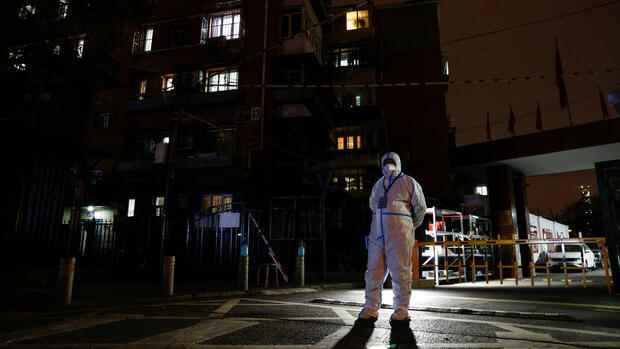Bangkok Progress is being made in an attempt to reduce China’s vaccination backlog – but the population of Asia’s largest economy cannot benefit from this for the time being. Almost two years after the emergency approval of the first mRNA vaccines in the West, the mRNA vaccine from a Chinese manufacturer has now also received approval – However, not in China, but in Indonesia.
In the east of the Indonesian capital Jakarta, the local biotechnology start-up Etana produces the vaccine AWcorna, which was developed by the Chinese companies Walvax and Suzhou Abogen together with the Chinese military. The vaccine will soon be used on a large scale in the country of 275 million people – as soon as the island state has used up its stocks of the Biontech-Pfizer vaccine.
The fact that the first Chinese mRNA vaccine is only to be used outside of the People’s Republic for the time being underscores the delicate special path in China’s vaccination campaign, which threatens to make it even more difficult to say goodbye to Beijing’s strict zero-Covid policy. The country has not yet approved any mRNA vaccine. Vaccines from manufacturers such as Biontech and Moderna, which have been able to convince the rest of the world with a comparatively high and long-lasting protective effect, are therefore not used in China.
Chinese are mostly vaccine skeptics
A low level of immunization in China in international comparison is one of the main reasons for sticking to the strategy of using tough measures to reduce the number of infections to as close to zero as possible. According to the authorities, a third of the approximately 270 million over 60-year-old Chinese have not yet received a third dose of vaccination. This is particularly important for the vaccines used in China, which are based on inactivated pathogens.
Top jobs of the day
Find the best jobs now and
be notified by email.
A general skepticism about vaccination is widespread in China, especially among the older parts of the population. China’s successes in largely containing the pandemic also led many to believe that full immunization is not mandatory. The probability of infection is still very low: the seven-day incidence was recently less than 20 – a tenth of the German value.
>> Read here: New lockdowns are squeezing China’s growth and weighing on European companies
There is no compulsory vaccination in China. Plans in the capital Beijing to only grant vaccinated people access to public buildings such as cinemas, museums and theaters were withdrawn within a few days in the summer after massive criticism on social media.
China’s refusal to approve Western manufacturers’ vaccines is also currently preventing the administration of new vaccines adapted to virus variants such as Omicron. The Mainz-based manufacturer Biontech, together with its Chinese partner Fosun Pharma, has been trying to gain a foothold in the Chinese market since the beginning of the pandemic. However, the vaccine is stuck in the approval process.
The trip to Beijing by Chancellor Olaf Scholz, who was accompanied by Biontech boss Ugur Sahin, seemed to have brought some movement at the beginning of the month. According to Scholz, the authorities in Beijing have assured the approval of the Biontech vaccine for foreigners – but there was initially no timetable as to when that should happen.
China’s mRNA vaccine reportedly 71 percent effective against omicron
However, a successful start of the Chinese mRNA vaccine in Indonesia could give the Chinese authorities a reason to reconsider their previous reluctance to use modern vaccination technology. According to the Indonesian health authorities, clinical studies have shown an effectiveness of more than 83 percent with regard to early coronavirus variants. After two doses of the vaccine, the vaccine was around 71 percent effective against the omicron variant. An independent evaluation of the results in medical specialist publications is still pending.
Demonstrations against Corona policy in China
However, Walvax Chairman Li Yunchun feels confirmed by the approval in Indonesia: “Currently, China has fully mastered the most important core technology for mRNA vaccines and has achieved complete localization and independent control of the entire supply chain,” he said. According to a report in the state newspaper “People’s Daily”, Walvax is “intensively” trying to obtain emergency approval from the Chinese drug authority.
It would not be the first time that a Chinese Covid vaccine has been approved abroad before being approved by authorities in Beijing. In the case of the coronavirus vaccine from the manufacturer Sinopharm, which came onto the market at the end of 2020, the first emergency approvals were in the United Arab Emirates and Bahrain. It was only weeks later that China’s drug regulator also approved the use.
More: China’s rivals: seven charts show how the balance of power is shifting in Asia
